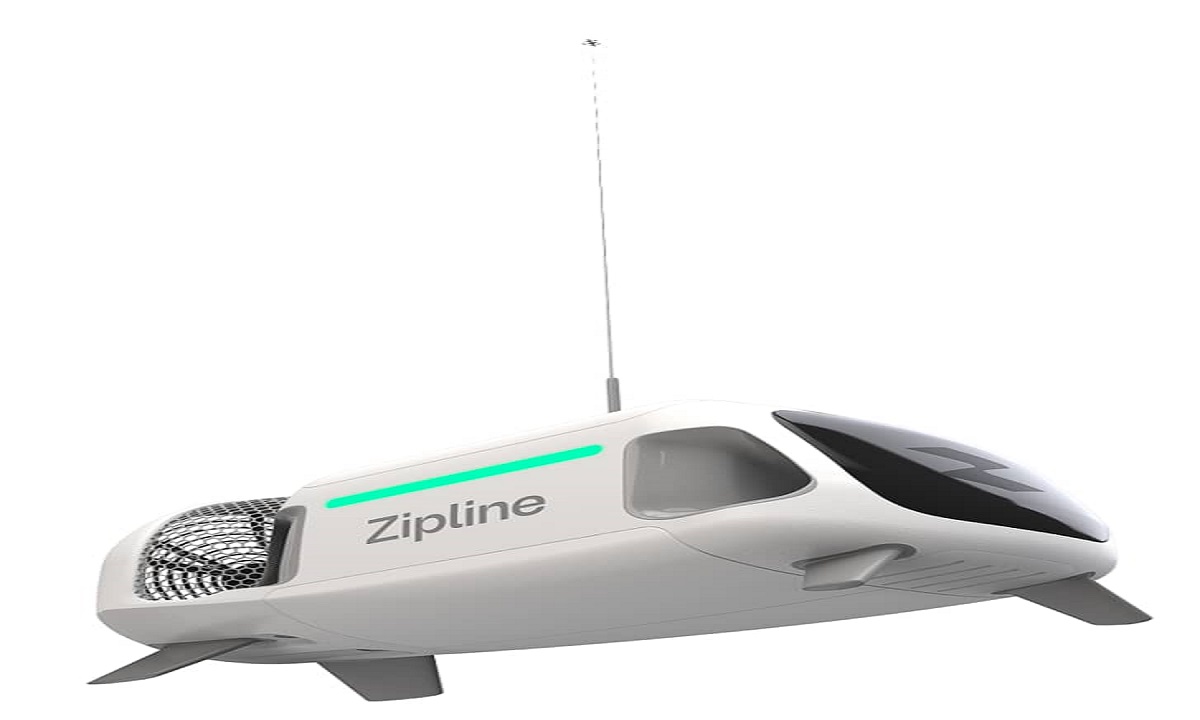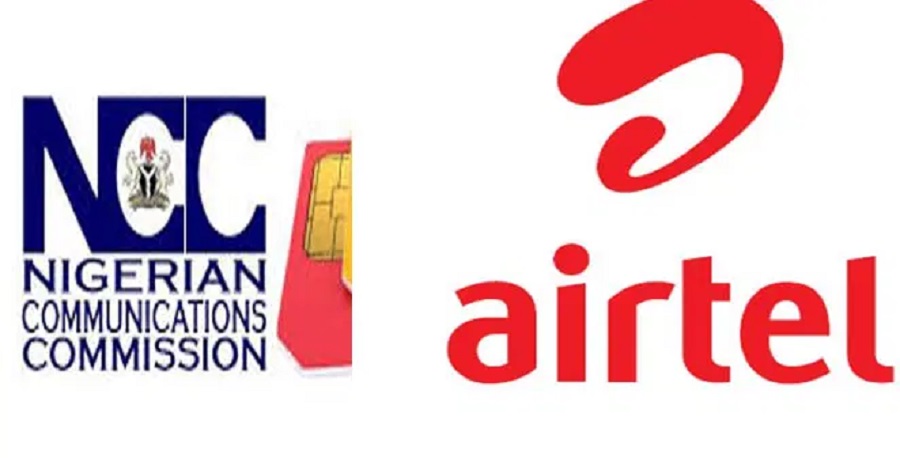Telecom
How Zipline is Revolutionizing Nigerian Healthcare and Economic Development With Autonomous Drones

Zipline, the leader in autonomous delivery, is teaming up with the government of Nigeria to transform health access and equity by using drone delivery to improve the country’s infrastructure, positioning it to leapfrog barriers to economic growth and development.

Since launching in Nigeria in 2022, Zipline’s climate-friendly and time-saving aircraft – designed to enable access for vulnerable and hard-to-reach populations – have delivered millions of vaccine doses, essential medicines, and more than 260 types of health products to more than 900 hospitals, health facilities and community drop points.
Across Africa, Zipline has invested to build local infrastructure and human capacity, creating more than 500 local jobs in robotics, healthcare, software engineering, and business disciplines.
On September 26, at the United Nations General Assembly, Zipline and the Nigerian Ministry of Health and Social Welfare will announce a plan to deploy Zipline’s drone delivery service across the country to reduce maternal mortality, malnutrition, malaria and other intractable health challenges. This project will build a more resilient logistics system that enables access to high quality, reliable healthcare for a substantial portion of the country’s non-urban population and improves the health system’s ability to respond to disasters and emergencies.
The partnership aims to create a sustainable financing framework to attract commitments from global health, economic development, and climate funders to establish autonomous drone infrastructure around the country in strategically determined locations, and to enable the operation of these drone networks through hiring, training and empowerment of local talent.
Gavi, the Vaccine Alliance, has partnered with Zipline since 2016 and supports vaccine programs in Nigeria; the Elton John AIDS Foundation has collaborated with Zipline in Kenya since 2022 to bring HIV services to young adults outside of traditional health settings.
Together, they are seeding the vision for this new partnership in Nigeria by coming in as the first financial backers. It underscores their commitment to innovative, collaborative approaches, using creative financing mechanisms to transform health outcomes for key communities, with a focus on young people.
“It is this sort of partnership – one that brings tens of millions of dollars of foreign investment, turns Nigeria into a global AI and robotics powerhouse, and creates jobs of the future for its youth – that will reshape Nigeria and the world over the coming years,” Zipline CEO and Co-Founder Keller Rinaudo Cliffton said.
Since coming into office, President Bola Ahmed Tinubu has introduced a package of reforms to improve Nigeria’s security, strengthen public services and bolster the business environment.
In October 2023, he launched the Presidential Initiative for Unlocking the Healthcare Value Chain (PVAC) to transform the country’s healthcare ecosystem. Under the leadership of National Coordinator Dr. Abdu Mukhtar, PVAC is making strides to increase local healthcare manufacturing, reduce medical tourism, and create quality jobs in the nation.
“This new Memorandum of Understanding will dramatically advance PVAC’s goals,” said Nigerian Minister of Health and Social Welfare Dr. Muhammad Ali Pate, previously Global Director for Health, Nutrition and Population at the World Bank Group.
“Scaling Zipline’s infrastructure nationwide can digitize, modernize, equalize and raise the quality of healthcare services available to all Nigerians, while at the same time propelling our country into a new era of economic prosperity, climate resilience and global technological leadership.”
With its zero-emissions, AI-powered logistics system and commitment to local job creation, Zipline demonstrably helps surmount obstacles to achieving the United Nations Sustainable Development Goals. Nowhere are the benefits of on-demand drone delivery more apparent than in healthcare, encompassed by SDG 3.
Today, in the areas that Zipline serves, a doctor or community healthcare worker can get blood, vaccines, drugs and other medical supplies in as little as 10 minutes.
The impact of Zipline’s early operations on health outcomes in Africa has been staggering:
- Zipline has centralized almost all of Rwanda’s blood supply and sends it on demand where it’s needed, avoiding long storage of unused blood components in the field. A study published in The Lancet shows that Zipline reduced blood expiries by 67% in its first three years of operating in Rwanda.
- Also thanks to its ability to centralize and deliver blood on demand, Zipline has reduced in-hospital maternal mortality due to postpartum hemorrhaging by 51% in Rwanda.
- Similarly, the Ghana Health Service finds a4% decline in maternal deaths at Zipline-served facilities vs. non Zipline facilities, driven by increased health system utilization.
- Research published in the peer-reviewed finds a 21 percentage point average increase in childhood vaccination rates in Zipline-served areas in Ghana.
- A study funded by the Bill and Melinda Gates Foundation finds that in Ghana, Zipline reduced missed vaccination opportunities by 42% and the duration of vaccine stockouts (when a product is out of stock due to inventory shortage) by 60%.
- PrEP retention refers to how regularly a patient takes pre-exposure prophylaxis (PrEP), a tool used to prevent transmission of HIV. In Kenya, Zipline has helped increase 1-month and 6-month PrEP retention rates to 94% and 86% respectively (rates were 9-12% before Zipline).
- While studies on Zipline’s work in Nigeria are still underway, Zipline has already helped vaccinate more than 15,000 children, 10,000 of whom were originally classified as zero-dose (children who have never received a single dose of vaccine).
A second arrangement between Zipline and the Federal Ministry of Communications, Innovation and Digital Economy of Nigeria will extend the envisioned national partnership’s benefits to address sectors beyond healthcare, including agriculture, education and disaster relief.
Telecom
Airtel Recommits to Fraud Prevention after NCC’s N104m Fine for SIM Registration Breaches

Airtel Nigeria has restated its commitment to transparency, customer safety, and regulatory collaboration following recent regulatory enforcement by the Nigerian Communications Commission (NCC).

The NCC had served Airtel Nigeria a notice of sanction over some alleged SIM infractions in Kano State and consequently slammed a fine of N104 million on the telecommunications firm.
NCC had in a letter, addressed to Airtel Nigeria Chief Executive Officer, dated May 26, 2025, signed by Chizua Whyte, head, Legal and Regulatory Services, and Mohammed Dari, acting head, Compliance Monitoring and Enforcement, on behalf of Dr Aminu Maida, executive vice chairman, NCC, titled: ‘Notice of Sanction: Non-Compliance with SIM Registration Directive in Kano,’ where the infractions were spelt out.
According to NCC, Airtel infractions include unauthorised SIM registrations using 198 unapproved devices, resulting in 8,275 registrations outside the 281 verified Airtel shops; premature activation of 63 MSISDNs prior to proper SIM registration, contrary to the provisions of the Registration of Communications Subscribers Regulations 2022; failure to conduct effective eyeballing, leading to 407 fraudulent SIM registrations with multiple NINs, contrary to the provision of the Registration of Communications Subscribers Regulations 2022 and failure to provide satisfactory explanation for SIM registrations conducted between 12.00 a.m and 6.00 a.m.
On the matter, the letter revealed that there were some letter exchanges and subsequent meetings on the infractions between the telecom regulator and Airtel, starting from January 12, 2025, March 19, 2025, March 24, 2025, and March 27, 2025, respectively.
Apparently, after investigations and responses from Airtel, the NCC was not satisfied and this led to the fine of N104 million, which was to be paid within seven days from the date the letter was issued.
Specifically, NCC fined Airtel N5 million, N12 million, N81.4 million and N5 million for the infractions respectively.
Reacting, Airtel, expressed appreciation to the NCC for uncovering the infractions, describing the development as a critical opportunity to strengthen internal processes and further align with national security and regulatory expectations
“We thank the NCC for its vigilance and continued support in protecting the integrity of the telecoms ecosystem. Airtel takes these findings seriously and is already implementing corrective measures,” a spokesperson for the company said.
Only recently, Airtel Nigeria’s CEO recently announced that the company is doubling its investment in the country, focusing on network expansion, fiber-to-the-street rollout, 4G/5G deployment, customer care upgrades, and digital infrastructure security.
These investments reinforce Airtel’s long-term vision of building a resilient and forward-looking telecom network that meets the evolving needs of Nigerians.
“Our systems are constantly evolving to stay ahead of scammers and malicious actors,” the spokesperson added. “This is not just about compliance; it’s about our responsibility to the millions of Nigerians who rely on Airtel daily.”
Airtel Nigeria says it will continue to work closely with the NCC and other arms of government to ensure high standards of service and safety for all telecom users nationwide.
Telecom
Kenya Beats Nigeria As the Most Progressive ICT Regulation in Africa

Kenya is celebrating its regulatory ecosystem being ranked as the most progressive in Africa. The International Telecommunications Union (ITU) has ranked the East African country first in its most recent ICT Regulatory Tracker.

ITU’s ICT Regulatory Tracker is an evidence-gathering tool for decision-makers and regulators. It demonstrates the effectiveness of regulatory systems in the age of technology.
The ITU evaluates the design of the national regulatory authority, the scope of the regulatory mandate, the obtaining regulatory environment, and the robustness of the competition framework in member countries.
Kenya received 93 points, up from 92 in 2023, and now leads the continent in best practices for ICT regulations.
Nigeria and South Africa finished second and third, with 92 and 88 points respectively. Malawi, Egypt, Rwanda, Morocco, Uganda, Burkina Faso, and Senegal complete the top 10 list.
Globally, Kenya was ranked 20th out of 194 countries covered.Italy led the rankings, with 100 points.
The regulator, Communications Authority (CA) of Kenya, said the achievement underscored Kenya’s commitment to creating a robust, technology-neutral regulatory environment that supports innovation, affordability and access.
Steve Isaboke, permanent secretary for broadcasting and telecommunications, visited CA Centre in Nairobi following the announcement on Thursday.
“The ranking is a clear testament of the excellent work that CA has done in spearheading Kenya’s digital transformation and driving digital access for all,” he said.
“After 25 years, CA’s regulatory regime has attained maturity, and gained global recognition. This ranking shows that the CA staff and leadership are executing their work diligently.”
Telecom
MTN’s Female Leadership Surges to 41.4%, Doubles Industry Average

MTN Nigeria Communications PLC has announced a significant increase in female representation within its leadership, with women now making up 41.4% of its workforce, a notable rise from 38.7% in 2023.

This figure reportedly doubles the industry average, positioning MTN Nigeria as a frontrunner in gender diversity within Nigeria’s ICT sector.
The company’s recently released 2024 Annual Report highlights its sustained commitment to workplace inclusion and gender equality, aligning with its “Ambition 2025” strategy. Female representation within the executive management team has reached approximately 46.7%.
MTN Nigeria attributes this progress to dedicated initiatives aimed at empowering women professionally. These include the “Women in Tech” programme, which provides targeted upskilling in high-demand fields such as Cloud Computing, Software Engineering, AI/ML, Data Science, and Cyber Security.
The “MTN Y’ello Mums Internship Programme” also supports young mothers in their transition back into the corporate world after career breaks.
Odunayo Sanya, executive director of the MTN Foundation, was recognised as the CSI Personality of the Year at the Nigeria Tech Innovation & Telecoms Awards (NTITA), further underscoring the company’s impactful social initiatives.
Additionally, Uto Ukpanah, the company secretary, received the inaugural Global Corporate Secretary of the Year Award from the Corporate Secretaries International Association (CSIA).
Speaking at a recent conference, Odunayo Sanya, emphasised the importance of balancing profitability and sustainability equation, saying, “Businesses today need to be purpose-driven. While the soul of business is profitability, it is not profitability alone that should matter to stakeholders.”
Uto Ukpanah, added, “Showcasing our corporate values and ethos to the world opens the door for greater collaboration with other organisations, as we believe there’s a lot to learn when we all come together. Governance continues to evolve. The challenges today are not the same as they were 10 years ago. Greater accountability is expected, and companies can only continue to do better.”
The company’s broader efforts in diversity and inclusion have been acknowledged with multiple accolades, including the Corporate Responsibility Award. MTN Nigeria also received the “Employer of the Year” award at the 4th Edition of the Nigeria Employers’ Consultative Association (NECA) Employers’ Excellence Awards.
Karl Toriola, CEO of MTN Nigeria, in the report, reiterated the company’s commitment to building a purpose-driven organisation, emphasising that its success is intrinsically linked to its people and their dedication to a shared vision.
“Since we initiated our culture transformation journey in 2021, our culture transformation has significantly enhanced employee engagement and organisational cohesion. It’s directly strengthened our ability to deliver outstanding business performance and drive sustainable long-term value for all our stakeholders.”

 Telecom3 days ago
Telecom3 days agoTelcos Threaten to Disconnect Banks over Misinformation on New USSD Charges

 Telecom3 days ago
Telecom3 days agoMTN Nigeria Plans N900Bn in Service Upgrade

 General News3 days ago
General News3 days agoJumia Marks 13 Years of E-Commerce Innovation and Impact in Nigeria

 Telecom3 days ago
Telecom3 days agoTelecom Regulators in Africa Chart New Course for a Data-driven Future

 Broadcasting3 days ago
Broadcasting3 days agoNetflix Hikes Subscription Fees Again in Nigeria over “Market Conditions”

 News3 days ago
News3 days agoAbbas Jega, Ex-AMCON ED, Testifies, Says Arik Never Cooperated With AMCON

 Broadcasting3 days ago
Broadcasting3 days agoNBC, Nigcomsat Launch Satellite Plan to Transform Broadcasting

 E-Financial3 days ago
E-Financial3 days agoNDIC Calls for Inputs to IADI Core Principles for Effective Deposit Insurance




























